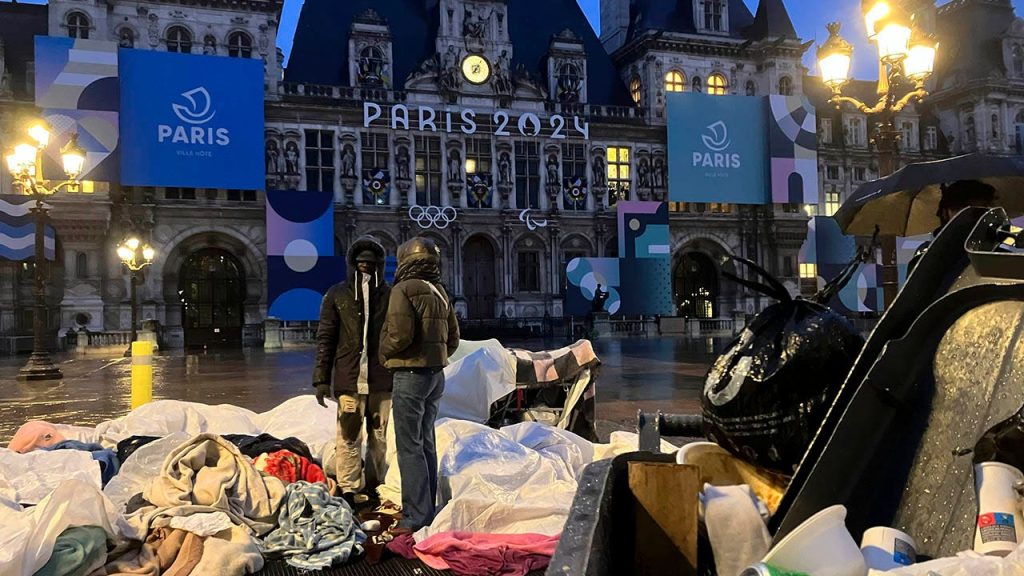French police removed around 50 migrants, including families with young children, from the forecourt of Paris City Hall as the city prepares to mark 100 days to the start of the Olympic Games. The migrants were mostly women and children aged 3 months to 10 years, who were sleeping in the plaza. They were moved to temporary local government housing in the town of Besançon in eastern France. Aid workers are concerned that this move is the beginning of a broader effort by Paris authorities to clear out migrants before the Olympics without providing longer-term housing options.
Olympics organizers have said they are working with aid groups to find solutions for those in the streets. Many of the families are from French-speaking African countries, including Burkina Faso, Guinea, Ivory Coast, and Senegal. They have been sleeping beneath the ornate facade of the Paris monument for days, weeks, and even months. Aid groups have distributed food, blankets, and diapers, and helped some find temporary lodging for a night or two. A mother of two from Guinea, Fatoumata, spent a month sleeping on the streets of Paris with her two children. She boarded a bus in hope of finding a better life outside the capital.
Yann Manzi, a member of the migrant aid group Utopia 56, expressed concerns that the removal of migrants is nothing short of social cleansing of the city for the Olympics. The Paris Games will run from July 26-August 11, followed by the Paralympics from August 28-September 8. Organizers are working to find solutions for those sleeping rough in Paris, including many people who come from around the world seeking refuge or employment. Families with young children were bundled up in strollers, under blankets, or covered with plastic sheets to shield against the rain while sleeping in the plaza before being removed by police.
The families brought their belongings and boarded a bus to temporary housing in Besançon. Aid workers are concerned that this move may be part of a broader effort by Paris authorities to clear out migrants before the Olympics without providing longer-term housing options. The Paris City Hall forecourt is a popular spot for migrants to gather, with many coming from French-speaking African countries. They have been sleeping beneath the ornate facade of the Paris monument, receiving assistance from aid groups who provide food, blankets, and diapers. The removal of migrants from the plaza has raised concerns about the treatment of those living rough in the city.
Fatoumata, a mother from Guinea, shared her experience of sleeping on the streets of Paris with her two children before boarding the bus to temporary housing in Besançon. She expressed hope that life would be better outside the capital, away from the struggles of sleeping rough with children. Paris authorities are under scrutiny for their treatment of migrants in the lead-up to the Olympics, with concerns that the city is being cleansed of rough sleepers. As the countdown to the Games continues, organizers are working with aid groups to find solutions for those in need, including families with young children who have been sleeping in the plaza of Paris City Hall.


